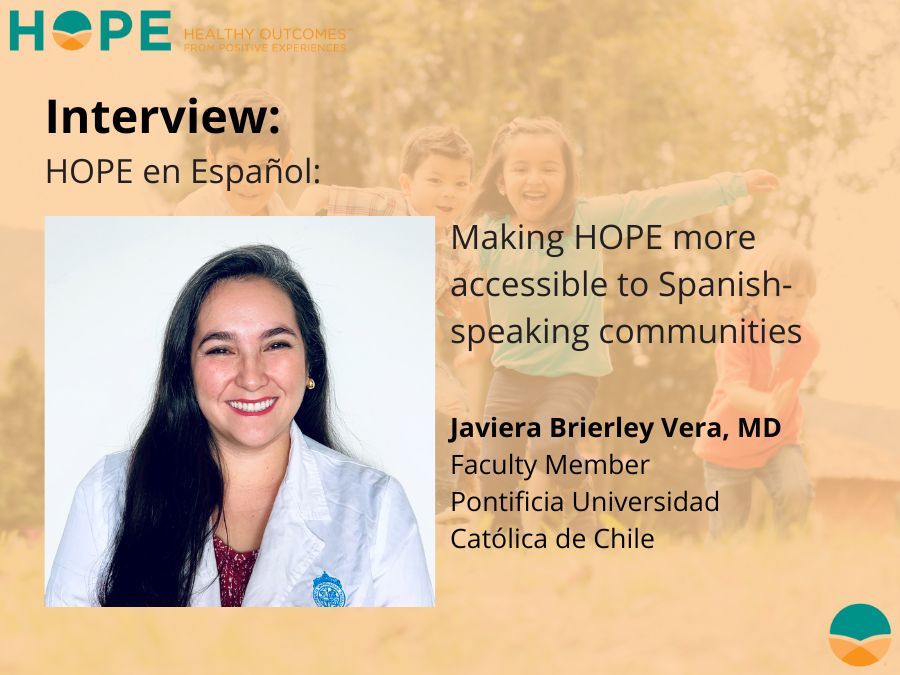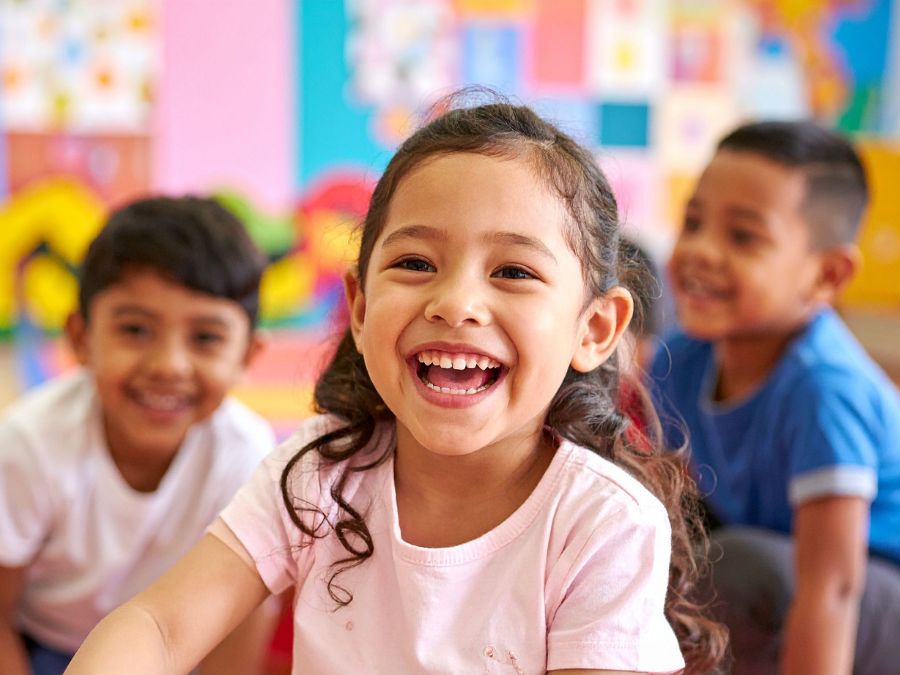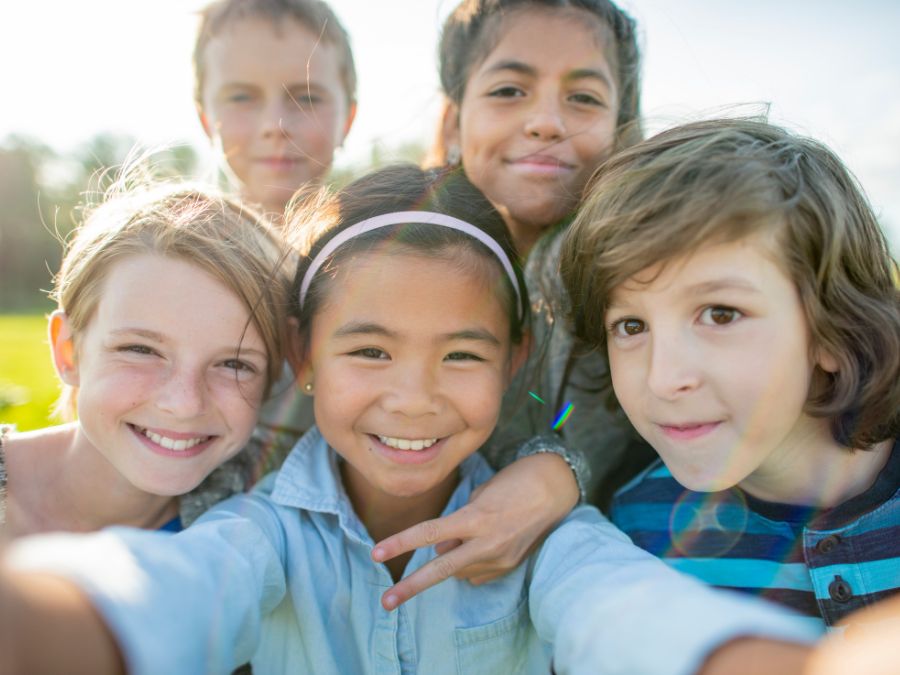
Impulsando un acceso equitativo a los recursos de HOPE
Cuando Javiera Brierley Vera, MD, era residente de Medicina Familiar en la Pontificia Universidad Católica de Chile, eligió realizar una rotación en el Centro Nacional de Recursos HOPE en Tufts Medical Center porque quería aprender más sobre las experiencias positivas en la infancia (PCEs, por sus siglas en inglés) y cómo podía aplicar el enfoque de HOPE en su campo. Lo que no sabía en ese momento era que habría un rol muy importante que ella desempeñaría después: hacer que el marco HOPE sea más accesible para personas hispanohablantes, tanto en Estados Unidos como en América Latina.
Actualmente, la Dra. Brierley es académica del Departamento de Medicina Familiar, en la Pontificia Universidad Católica de Chile, Médica Familiar enfocada en la atención de niños y adolescentes, facilitadora certificada de HOPE, y embajadora de HOPE en Chile. Ella continúa colaborando activamente en la construcción de la página HOPE en Español en el sitio web de HOPE, liderando la traducción de materiales y formalizando el equipo de facilitadores hispanohablantes.
Llevando HOPE a Chile
Durante su tiempo en el Centro Nacional de Recursos HOPE, una de sus contribuciones fue la revisión y mejora de diapositivas en español para el entrenamiento de Introducción a HOPE. Para asegurarse de que los términos traducidos realmente resonaran en español y que los ejemplos fueran culturalmente relevantes, consultó a personas hispanohablantes de diferentes países.
“Como hay muchos términos clínicos involucrados, queríamos asegurarnos de que esos términos se tradujeron correctamente,” explicó la Dra. Brierley. Su inmersión en el equipo de HOPE le ayudó a comprender cómo lograr esto.
“Estar en el Centro Nacional de Recursos HOPE fue una gran oportunidad, porque me permitió realmente comprender el marco HOPE. Y también, como ahora soy parte de este movimiento y me encanta lo que HOPE está haciendo, quiero promover el acceso a las experiencias positivas en la infancia en todos los niveles…. y al estar comprometida con este enfoque, traducir los materiales es mucho más fácil para mi”
Desde su regreso a Chile, ha conectado a sus colegas con HOPE tanto de manera formal como informal. Ha llevado a cabo capacitaciones informales de HOPE con colegas de la Universidad y con médicos del Centro de Atención Primaria donde trabaja.
“Todos mis colegas en Medicina Familiar conocen sobre HOPE, y les hace mucho sentido”, comentó.
La importancia de traducir los materiales y recursos
Mientras se avanza hacia una colaboración formal entre HOPE, el Departamento de Medicina Familiar y la Facultad de Medicina de la Pontificia Universidad Católica de Chile, ella ha incorporado el enfoque de HOPE en la formación de estudiantes de medicina y residentes de Medicina Familiar. Junto a su equipo, están desarrollando cursos sobre comunidades Esperanzadoras (HOPEful Communities) y PCEs para profesionales de la salud en Chile. También ha llevado el marco de HOPE a la ONG América Solidaria, que ahora lo está incorporando en sus programas.
“Siento que HOPE necesita conocerse a nivel mundial y por eso es muy importante traducir todos los materiales y recursos”, dijo la Dra. Brierley. “Siento que todos los niños, niñas, adolescentes y sus familias merecen dignidad, equidad y la oportunidad de tener experiencias positivas en la infancia. Y creo que eso será posible si acercamos HOPE a sus propias palabras, a su idioma, a sus ejemplos.”
El Centro Nacional de Recursos HOPE ha capacitado a 79 facilitadores que tienen español como uno de sus idiomas. Desde que comenzó el seguimiento formal de entrenamientos en noviembre de 2024, los facilitadores han realizado 15 talleres en español. En 2023, la Dra. Brierley coordinó una conferencia principal de HOPE por Zoom entre el Centro Nacional y su comunidad universitaria, con traducción simultánea al español.
Creando una red para HOPE en Español
Muchas otras personas han contribuido al desarrollo de HOPE en Español:
- Flavia Maccio, del Great Start Collaborative en Michigan, ha traducido materiales de HOPE y ha dirigido una capacitación “Train the Facilitator” en español.
- Sara Ladino Cano, de la EASTIE Coalition en Boston, ha traducido cursos en línea de “Introducción a HOPE” y también realizó la narración de éstos en español.
- Ariane Porras, del YMCA de San Diego en California, ha traducido materiales y liderado talleres en español.
La Dra. Brierley busca difundir HOPE por toda América Latina. En cinco años, espera que los países hispanohablantes “conozcan sobre HOPE, lo promuevan, y que todos podamos hablar de experiencias positivas” afirmó.
En Chile, destaca que existe un sistema de salud pública bien establecido.
“Entonces, mi propósito es que las experiencias positivas en la infancia sean el eje central de las estrategias gubernamentales para niños, niñas y adolescentes.… Si logramos eso, y luego otros gobiernos hacen lo mismo… podremos centrar nuestra atención en las fortalezas de las familias, su resiliencia y lo que hacen bien.”
¡Queremos saber de ti!
Nuestras comunidades hispanohablantes también necesitan mayor acceso a las experiencias positivas en la infancia, y hay mucho por hacer. ¡Colaborando y trabajando juntos para expandir este movimiento, podemos hacerlo realidad! Contáctanos si deseas formar parte de la red de ‘HOPE en Español’.
Traducción al español realizada por Javiera Brierley Vera.
Creating equitable access to HOPE National Resource Center’s resources
While Javiera Brierley Vera, MD, was a Family Medicine resident in Pontificia Universidad Católica de Chile, she chose to do a rotation at the HOPE National Resource Center at Tufts Medical Center because she wanted to learn more about positive childhood experiences (PCEs) and how she could apply the HOPE framework to her field. What she didn’t realize at the time was that there would be a very important role for her to play: making the HOPE framework more accessible to Spanish speakers, both in the United States and in Latin America.
Now, Dr. Brierley is a faculty member at Pontificia Universidad Católica de Chile, a family medicine physician who focuses on children and adolescents, a trained HOPE Facilitator, and an ambassador for HOPE in Chile. She continues to help build out the HOPE en Español (HOPE in Spanish) page on the HOPE website: spearheading the translation of the HOPE National Resource Center’s materials and formalizing the team of Spanish-speaking HOPE Facilitators.
Spreading the HOPE framework to Chile
During her time at the HOPE National Resource Center, one of her contributions was revamping the Spanish slide deck for the Introduction to HOPE training. In order to make sure that the translated terms actually resonated in Spanish, and that examples were culturally relevant, she consulted with Spanish speaking people from a range of different countries.
“Since…there is a lot of clinical terms involved, we want to make sure that those clinical terms are actually translated in what they’re supposed to be translated to,” said Dr. Brierley. Being immersed within the HOPE team helped her figure out how to do that.
“To be in the HOPE National Resource Center was a great opportunity, because I kind of got a real sense of what the framework was. And also, since I am part of this movement now, and I love what the HOPE framework is doing, I want to help promote access to positive childhood experiences at all levels … and because I’m embedded with that, it’s much easier to translate the resources.”
Since her return to Chile, she has introduced her colleagues to the HOPE framework in both formal and informal ways. She has conducted informal HOPE trainings with her university colleagues and with doctors at the primary care facility where she works.
“All my family medicine colleagues know about the HOPE framework, and it makes so much sense to them” she said.
The importance of translating materials and resources
While moving toward a formal collaboration between HOPE, the Family Medicine Department and the School of Medicine at Pontificia Universidad Católica de Chile, she has made HOPE National Resource Center materials accessible to medical students and family medicine residents through coursework. She and her team are working on courses about HOPEful communities and PCEs for health professionals in Chile. And she has brought the HOPE Framework to the NGO América Solidaria, which is now applying it in its programs.
“I feel like the HOPE framework needs to be known worldwide and that’s why translating all the materials and resources is important,” said Dr. Brierley. “And I feel like all kids and adolescents and families deserve dignity, deserve equity, deserve the chance of having positive childhood experiences. And I feel the only way that’s going to happen is if we …. use their words, if we use their language, if we use their examples.”
The HOPE National Resource Center has trained 79 Facilitators who list Spanish as one of their languages. And since formal tracking began in November 2024, HOPE facilitators have had 15 workshops in Spanish. In 2023, Dr. Brierley coordinated a HOPE keynote via Zoom between the National Resource Center and her university community, with a live Spanish translator.
Creating a network for HOPE en Español
Many others have contributed to the buildout of HOPE materials en Español. Flavia Maccio, from the Great Start Collaborative in Michigan, has translated HOPE materials and has run a “Train the Facilitator” training in Spanish. Sara Ladino Cano is from EASTIE Coalition in Boston and has translated “Introduction to HOPE” online courses and did the voiceover in Spanish. Ariane Porras at the San Diego YMCA in California has also translated materials and led workshops in Spanish.
Dr. Brierley has ambitions of spreading the HOPE framework across Latin America. In five years from now, her hope is that Spanish speaking countries “know about the HOPE framework, we promote the HOPE framework, and we can all talk about positive experiences,” she said.
In Chile, in particular, she says there is a well established public health system.
“So my goal will be that our government can promote positive childhood experiences as the base of the strategies that involve childhood and adolescence… If we make that happen, and then other governments can do the same…we can focus on the strength of the families, their resilience, and what they do right.”
We want to hear from you!
Our Spanish-speaking communities also need greater access to PCEs, and there is so much that can be done in this area. By collaborating and working together to spread this movement, we can make it a reality! Contact us if you want to be part of the ‘HOPE en Español’ network.


